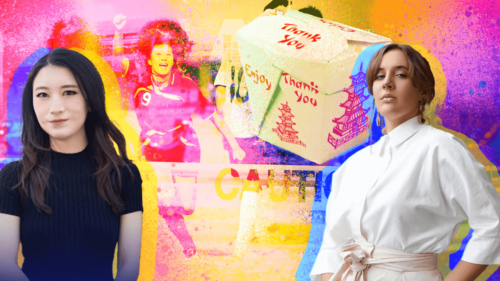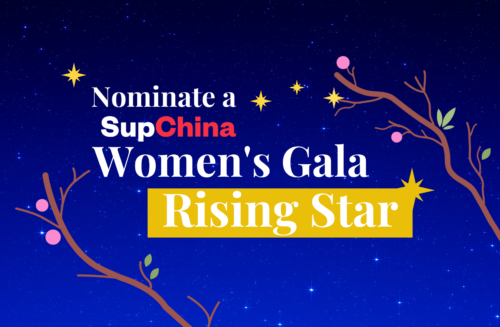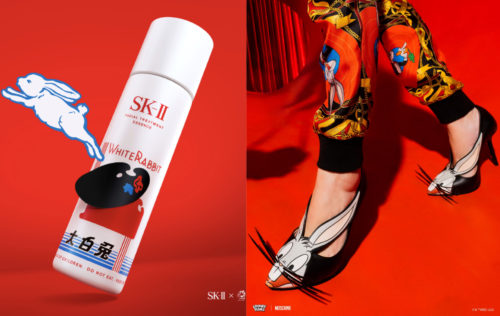Q&A: TV host and fashion icon Yue-Sai Kan on her legendary career and how she sees China
In this interview, Yue-Sai Kan talks about her proudest moment, her charitable efforts, and what she’s been up to lately.

Yue-Sai Kan is an award-winning television host and producer, successful entrepreneur, fashion icon, bestselling author, and noted humanitarian. She first won acclaim with her long-running series “Looking East,” the first of its kind to introduce Asian cultures and costumes to a growing and receptive American audience. Later, she also became a household name in China as host of “One World,” which aired in the 1980s and boasted 300 million weekly viewers in the country.
Moving from TV personality to businesswoman, Kan launched her own cosmetics brand in 1992, which grew into China’s leading beauty company before being purchased by L’Oréal in 2004.
People Magazine called Kan “the most famous woman in China” and Time Magazine proclaimed her “the Queen of the Middle Kingdom.”
Join us and celebrate her achievements at The China Project Women’s Conference 2021, which is slated to take place virtually on May 12 and 13. Get your tickets here before they sell out!
Ahead of the event, we caught up with Kan to talk about her proudest moment, her charitable efforts, and what she’s been up to lately.
The following interview has been lightly edited for length and clarity.
The China Project: Tell us about the high point of your career. What do you love about your work? Describe your proudest moment.
Yue-Sai Kan: What I love about my work is that I can harness the power of beauty to accomplish so many good things.
In 1992, I launched Yue-Sai cosmetics in China. At the time, I was already known as “The Most Famous Woman in China” because of my “One World” television series. It opened the eyes of a billion Chinese to the outside world. My hairdo was copied, the way I wore makeup and fashion was the talk of the town. That was absolutely one of my proudest moments because I was able to start a revolution in China by injecting colors into a colorless country and “changed the face of China one lipstick at a time,” as Forbes puts it!
The idea that every woman can look her best using cosmetics is so emancipating that it not only changed the way Chinese women look at themselves, but also directly impacted other aspects of their lives, including career, education, and their place in society. I’m glad to have played a significant part in changing a deep-seated old mindset.
The China Project: What inspired you to start your own nonprofit, Yue-Sai Kan China Beauty Charity Fund? What are you hoping to achieve with it? In your opinion, how important is it for influential people to make a significant social impact?
Kan: I have been involved in charity activities all my life. In the United States, giving is a way of life. If there is one thing you learn from Americans, it is to be involved in charities. For as long as it has been recorded, the United States has been ranked as the most generous nation in regards to charity. Americans gave $410 billion to charity in 2017.
I started doing charity work when I got my first paycheck. I put aside 10% of my income for charity. At that time, it was an enormous amount of money for me at the age of 19. I always say that the universe really has a way of repaying those back who use their money for good. In 2011, I set up my own foundation — Yue-Sai Kan China Beauty Charity Fund, it is dedicated to the betterment and advancement of women and children through education, health, and cultural programs worldwide.
As the first order of business of my own foundation, we started to host the China Fashion Gala in New York, an annual celebration of Chinese design and an opportunity to support talented emerging Chinese designers on the world stage. Last year we held the Gala virtually and reached a much wider audience of several million people globally.
Each year, our gala brings together more than 400 celebrities, fashionistas, and business and social leaders, hoping to build an influential platform to inspire the young generation and continue to make a difference to the community with the power of beauty.
The China Project: In 2019, your foundation partnered with WeDesign Group to launch a program that taught Chinese fashion executives about sustainability. How did you first become interested in sustainability? In your experience, how much of a factor is sustainability to Chinese fashion lovers when it comes to purchasing and brand loyalty?
Kan: Fashion industry is one of the biggest polluters in the world. It is a topic that worthy of everyone’s attention. Actually, our first Executive Education in Sustainable Fashion program was created in early 2016, aiming to inspire and push the progress of sustainability growth in fashion and lifestyle industries in China. And we started to partner with WeDesign in 2019 so that we are able to provide the Chinese fashion executives with more comprehensive programs.
Sustainability is now a big trend in the fashion industry, more and more designers and fashion brands are shifting their focus to creating new sustainable solutions. And they’re really trying hard to educate consumers about the problems and solutions involving sustainability.
When it comes to purchasing, people care the most about the quality of course, but today’s consumers are becoming more sophisticated, they are looking for brands and products that align with their social values. They are willing to pay more for sustainable products as they’re paying more attention to environmental issues. I think quality and price are still the main driving forces of purchase decisions, but sustainability is definitely becoming a bigger factor.
The China Project: As someone who was born in China and spends a lot of time in the U.S., how do you navigate cultural differences in your television career and in your cosmetics business?
Kan: I was born in Guilin in Guangxi Province, which is right next door to Canton. My family moved to Hong Kong when I was two. Then at the age of 16, I went to Brigham Young University in Hawaii to attend college. For many historical reasons I knew almost nothing about China until I moved to New York in 1970 and started a TV show called “Looking East”. It was the first TV series in America concentrated on introducing Asia to the American audience, which at that time, had very little interest in Asia.
In fact, Mike Wallace told me that it was a very bad idea because no one would watch me. I knew he was wrong, and in the days before CNN or national TV networks, I syndicated my show on my own, bicycling to 12 stations across the country each week for national coverage.
Obviously, people watched it. Including Joan Konner, head of PBS New York. It was she who invited me to host their live broadcast of the parade held on Tiananmen Square marking the 35th Anniversary of the People’s Republic of China.
For me, it was a lot of hard work, no matter if it’s the television career or later the cosmetics business. Nothing I have done in my life came easy because most of them were things no one had done before. I’m always listening and learning, and I’m grateful to all the friends who have helped me along the way.
The China Project: When you produced and hosted One World, you played a critical role in introducing Chinese people to the outside world. Do you still see yourself as a “cultural ambassador” who could facilitate meaningful dialogue between Chinese people and American people?
Kan: I’m the co-chair of China Institute, a 95-year-old non-profit organization in New York that provides platforms and opportunities to learn more about China and Chinese culture through language, arts, music and business dialogues. China Institute relocated to a new space in downtown Manhattan six years ago, with over five times the space as our previous location, the new center in two floors is bursting with possibilities. The second floor is already completed with classrooms, a museum, a library, lecture halls, etc. We are working hard to raise enough money to complete the ground floor which we call the Center for Contemporary China where we will have a street front entrance, a new culinary center to promote and teach Chinese cuisines and host all kinds of events! We Chinese finally have a beautiful place we can call “home”!
We all agree that the relationship between China and the U.S. is the most important bilateral relation in the world today. While I can’t help much politically, I feel we can help to promote the amazing 5,000-year culture of China as a glue to create more understanding! No matter what the political climate is, we should continue to build supportive networks to ensure that China Institute will survive and thrive for another 100 years. Please join me in this quest!
Sadly, with the COVID-19 pandemic still raging in a way, our Asian American communities have been thrust into a uniquely complicated position. Cities like New York have been faced with so many daunting challenges, post-pandemic recession, economic disparity, racial tension and not to mention the latest rise in anti-Asian hate. This has made me realize that we need to have more representations in the government that can speak on our behalf and protect us in a way other nationalities won’t. This is why I supported almost all Asian candidates in the last election and especially now, the former presidential candidate running for Mayor of New York City Andrew Yang. It is not just that he is Asian, he is a leader with fresh and bold ideas, who understands business and entrepreneurship and has strong support for the underprivileged. I really hope you too will support Andrew!
The China Project: China has come a long way since you became a household name there. When you look at today’s China, are you amazed by how it has changed over the years?
Kan: In the last 36 years that I have been involved with China as a media person, businesswoman, author and philanthropist, I witnessed a country with millions of impoverished people who did not have enough food to eat or clothes to wear and didn’t have decent housing. Today China has eradicated poverty in this country and is now firmly established as the second largest economy in the world. In many ways hundreds of years didn’t accomplish what has taken place in China over the past four decades. This is truly an extraordinary period in history!
I’m currently working on my own memoir, in which I shared many of my own experiences and observations on the constantly changing China. There is no way I can explain or describe what China is truly like today. All the numbers and stats I have given in the book I’m sure will change by the time you read it, but I hope that when people read the book, their perception of China will be closer to its reality.
The China Project: What does the landscape of women entrepreneurs in China look like? What advice would you give to a woman getting started in her career?
Kan: When I started doing business in China in 1990, there were very few entrepreneurs let alone women entrepreneurs. But Chinese women have since done amazingly well. They are brought up under the ideal of “holding up half of the sky”. They are treated equally as their male counterparts when it comes to opening a business, getting a loan, buying real estate and etc. Many people have questioned me if I had found it difficult to do business in China as a female. Actually, not at all. I have found that being female sometimes is an advantage. Today, according to the Hurun Report, 61 of the world’s top 100 self-made female billionaires are Chinese. They cover all industries, real estate, manufacturing, technology, you name it!
One advice I would give is don’t be afraid to fail. The rapid development in China in recent years has been providing more career opportunities for capable women. If you are willing to try and work hard, you will be surprised at what you can achieve.
The China Project: Looking back – if you could advise a younger version of yourself to do something different, what would it be?
Kan: I would say to slow down a little bit and take care of myself, health-wise. When I was working on “One World”, I was on 24/7. I worked on weekends and during holidays. My weight was an unhealthy 90 pounds. Then I traveled so much for Yue Sai Cosmetics that every time I flew, I would catch a cold.
During the pandemic, I picked up Spanish again and even learned how to cook a few dishes. I do yoga and swim 3 times a week. I also do TRX every day. I sleep soundly every night and I’d like to keep it this way.
The China Project: Can you tell us a bit about some exciting projects that you are working on at the moment?
Kan: I stayed in Hawaii for 1.5 years and just returned to New York. I love Hawaii and I just bought 8 acres of farmland in the North Shore of Oahu. This is going to be one of my exciting projects! I want to learn to live sustainably and happily on the land. How life has come around a full circle: the land I bought is about ten minutes from where I first landed in the U.S. – Brigham Young University–Hawaii, the college I attended when I was 16!
I was nominated as the United States Region President of United Nations Department of Economic and Social Affairs – ONG Pour Favoriser les Echanges Culturels entre la France et la Chine, (collectively “ECOSOC ONG FECFC”), and I will be working closely with them on multitudes of international events aiming at facilitating the relationship between China, Asian and French-speaking countries. And besides my memoir, I have other big events in China this year.





